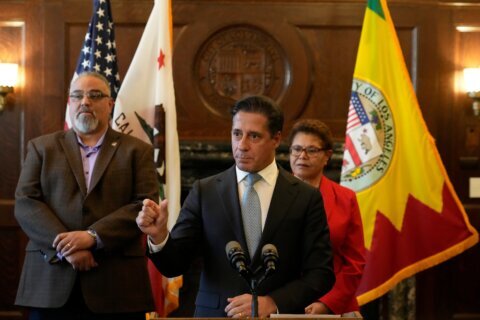The Alexandria City School Board has voted to approve extensive revisions to its contract with the police department in the Northern Virginia city.
Several local school systems around the region are re-evaluating how police are used inside their buildings and what the role of policing in schools should even be.
In Alexandria, the debate over School Resource Officers is leading to changes to the contract with the city’s police department.
The goal is to ensure accountability and equality in disciplinary and legal matters involving students and schools. Under the terms of the new agreement, passed on a 6-3 vote after hours of discussion and debate on Thursday, Alexandria plans to closely analyze that data and sort it by demographics.
“We will include age, race, sex, and disability, and any other pertinent data,” said John Contreras, the director of Safety and Security Services.
He later added, “This data will inform on whether law enforcement action taking place in schools promotes a safe and equitable school environment.”
The revisions clearly spell out that “any action taken in response to disciplinary misconduct and/or criminal offense will be administered fairly and without regard to race, national origin, disability, religion, gender identity, gender expression, sexual orientation, or marital or parental status.”
The new agreement more clearly delineates what a student’s rights are. In particular, a student’s parents must be informed ahead of time about any “contact” between a school resource officer and their child.
“Contact is defined as ‘questioning for law enforcement purposes,’ and this pertains to questioning of a student or staff member or anyone inside the school,” Contreras said. “Or detainment of a student, and number three, apprehension or arrest of a student. All contacts shall be considered reportable offenses.”
Students will be given warnings about their rights when being questioned by SROs, and if they’re suspected of anything that might warrant lawful detainment, a school administrator will be required to be there.
“No questioning of a student will take place without the presence of a school administrator,” explained Contreras.
In the future, when those situations arise, “the student will be informed generally of the purpose of the investigation or against self-incrimination in a developmentally appropriate manner because of the age of the student, and also informed and advised that the student has the right to remain silent and that the student is free to leave an interrogation and the student has the right to stop the questioning and request that his or her parent, or guardian, or attorney be present at any time.”
Some members of the school board still questioned the need for SROs in buildings and expressed discomfort with the idea that police are in the schools “looking for criminal activity.” But when asked if SROs needed to be armed with service weapons and handcuffs, or if they could be taken off SROs and put in storage at the school so they’re still available during an emergency, the city police chief shot that idea down.
“It’s our policy that if you’re going to have an officer on scene, they will be equipped with all the things that they can use to de-escalate and also take care of issues,” said Chief Michael Brown. “It’s also for the officer’s safety.”
Brown said putting a uniformed officer on duty without “all the equipment that they’re trained to use to protect life and property, including the students” is not something he would condone.







